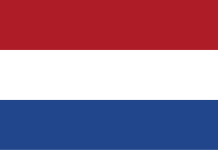Boston Consulting Group (BCG), a global management consultancy firm, says financial inclusion initiatives are capable of lifting Nigerians out of poverty and boosting the economy of the country.
The consulting firm proposed equitable distribution of resources, infrastructural development and formulation of requisite fiscal policies as initiatives that will drive Nigeria’s post-COVID economic recovery.
The measures were contained in a recent report by BCG entitled “How to Forge an Inclusive Post-COVID Recovery in Nigeria.”
The report authored by a Partner at the firm’s Lagos office, Tolu Oyekan, stated that the initiatives, which form part of Nigeria’s sustainability plan, were critical in staving off the Covid-19-induced economic contraction, which could further compound the poverty situation in the country.
He identified the electrification of rural households through a pay-as-you-go solar service and cashless transactions via telco-induced mobile money platforms, as examples of such infrastructural intervention projects.
The partner noted that the Nigerian government had a target of installing new home solar power systems and mini-grids for over five million low-income households by the end of 2023.
According to him, many of these households either have no source of power, or rely on small, inefficient generators for electricity.
He added, “These families will need to use PAYGo, an installment financing option offered with mobile money bank accounts, to purchase the installation kits for these systems. Customers who have an existing mobile money account have a higher chance of accessing the facility than others who don’t.”
Speaking on the impact of the project, Oyekan said, “Our analysis shows that a PAYGo loan would make solar kits affordable for about half of the 31 million households that do not have reliable electricity and may also considered to be in a low-income bracket.
“What’s more, we found that 3.2 million out of 17 million households currently using kerosene and candles as their lighting source could afford the monthly PAYGo payments based on their current spending on lighting, plus about 10 per cent of their nonfood budget.”
He highlighted a recent USAID research which estimates that between 15 to 30 percent of PAYGo solar customers will create a credit history for the first time when they purchase a solar home system with a PAYGo plan.
Stressing the importance of having a credit history and financial footprint, he said, “That credit history could, in turn, lead to other loans for large expenses, such as school fees, which can consume up to 40 percent of a family’s annual income. Credit histories are also a critical driver of growth for small-business enterprises and first-time business entrepreneurs.”












